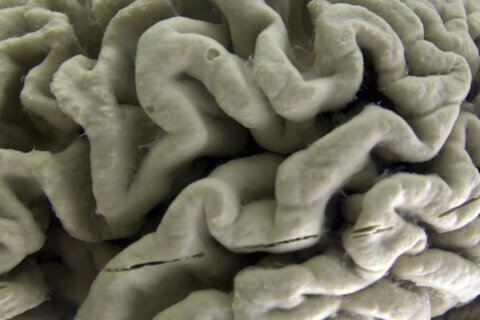Colon cancer and your diet
Every year, colorectal cancer claims tens of thousands of lives in the U.S.
The American Cancer Society estimates that the lifetime risk of developing colorectal cancer is approximately 1 in 23 and 1 in 26 for men and women, respectively.
Although there’s no surefire way of preventing colorectal cancer, there are certain lifestyle strategies that can help you lower your risk, including practicing healthy dietary choices.
“Having a healthy diet is one of the most important things you can do to prevent colorectal cancer,” says Marji McCullough, senior scientific director of epidemiology research at the American Cancer Society. “Individual components of your diet can contribute to an overall healthy diet pattern to lower the risk of colorectal cancer or increase it.”
So, is there a “best” diet for colon cancer prevention? Not quite, but research shows that a plant-based approach has been associated with a lower risk for colon cancer. In a 2015 study published in JAMA Internal Medicine that evaluated dietary habits of more than 70,000 people, researchers found that vegetarian eaters had a 22% reduced risk of colon cancer than non-vegetarian eaters. However, adding fish to a vegetarian diet, known as a pescatarian diet, further reduced colon cancer risk by 43%.
Here are 10 foods you can consume to mitigate your risk of developing colorectal cancer, and four you should avoid:
Fish
Adopting a pescatarian approach and adding fish to a vegetarian diet can be beneficial in protecting you from developing colon cancer.
Even if you don’t follow a plant-based diet, simply increasing your fish consumption may be effective in preventing colorectal cancer, according to research.
A 2022 meta-analysis of 25 preclinical studies found that increments of 50 grams in the daily consumption of fish was associated with a 4% reduction in colorectal cancer risk. These findings build on existing evidence that fish, as part of a pescatarian diet, is linked to a lower risk of colorectal cancer because of the omega-3 fatty acids, which have anti-inflammatory properties, and vitamin D, which has been shown to have protective properties against colorectal cancer.
The best types of fish to add to your diet include:
— Salmon.
— Mackerel.
— Mahi mahi.
— Tuna.
— Sardines.
— Rainbow trout.
Artichokes
High-fiber foods can help shield you from developing colorectal cancer, says Dr. Eudene Harry, medical director for the Oasis Wellness and Rejuvenation Center in Orlando, Florida.
A half-cup of cooked artichoke contains 7 grams of fiber. Artichokes also contain a compound known as chlorogenic acid. Laboratory research suggests this compound can decrease the rate at which colon cancer cells grow, Harry says.
Beans and legumes
Not only are beans and legumes packed with protein, but they are great sources of fiber as well.
For example, 1 cup of black beans contains 15 grams of fiber, more than half of the 25 to 35 grams recommended for adults on a daily basis.
It’s important to incorporate beans and legumes into your diet, especially since fiber can help shield you from developing colon cancer, says Lana Nasrallah, a clinical dietitian with UNC Health, a not-for-profit integrated health care system based in Chapel Hill, North Carolina.
“Fill up on this fiber-packed legume to meet your daily fiber quota, while reducing your colon cancer risk,” Nasrallah says.
Blueberries
When it comes to reducing your colorectal cancer risk, you should look for foods high in antioxidants, fiber and vitamins. That makes blueberries an ideal choice, says Helen Kollias, director of nutrition for Precision Nutrition based in Vancouver.
Research suggests that foods with antioxidants and fiber — like blueberries — help protect against cancer. Blueberries also contain vitamin A, vitamin C, folate, vitamin K, potassium, phosphorus, magnesium and calcium.
“Eat them raw as a snack, add them to smoothies (or) make blueberry jam or berry compote,” Kollias says.
You can also add make a healthy dessert with blueberries, Greek yogurt and honey. Or try this blueberry yogurt granola recipe.
Coffee
For people who have colorectal cancer, coffee may help significantly lower the risk of early death from the disease or any other cause, compared to people who didn’t drink coffee, research suggests.
The study, which followed 1,599 patients diagnosed with stage 1, 2 or 3 colorectal cancer, found that patients who consumed at least four cups of coffee daily — caffeinated or non-caffeinated — had a 52% lower risk of mortality from colorectal cancer.
Cruciferous vegetables
Research suggests that increased consumption of cruciferous vegetables is associated with a decreased risk of colon cancer. That’s because these types of vegetables contain high amounts of glucosinolates, a sulfur-containing phytochemicals that has been shown in studies to have anti-cancer properties, as well as fiber, vitamins and minerals.
Cruciferous vegetables include:
— Bok choy.
— Broccoli.
— Cabbage.
— Cauliflower.
— Kale.
Try this vegan salad with lentils, kale and cabbage.
Whole grains
Consuming a diet rich in whole grains is helpful for reducing your colorectal cancer risk. For example, 1 cup of oats contains 10 grams of protein and 8 grams of fiber, which is helpful in shielding you from cancer.
Whole grains include:
— Brown rice. — Barley.
— Bulgur.
— Oats.
— Quinoa.
— Whole rye.
— Millet.
Try this hearty cinnamon oatmeal recipe.
Pears
Fueling up on fiber-rich fruits like pears can help lower your risks of developing colorectal cancer, Nasrallah says. A medium-size pear has nearly 5 grams of fiber.
There are many different kinds of pears, including:
— Bartlett.
— Bosc.
— Comice.
— Gold.
— Forelle.
— Red Anjou.
— Green Anjou.
— Red Bartlett.
Nuts and seeds
Research suggests that eating nuts and seeds three times a week is associated with a decreased risk of recurrent colorectal cancer, Harry says.
Nuts and seeds include:
— Almonds.
— Cashews.
— Hazelnuts.
— Peanuts.
— Pecans.
— Pistachios.
— Sunflower seeds.
— Walnuts.
— Chia seeds.
— Flaxseeds.
— Hemp seeds.
— Pumpkin seeds
. Try these homemade almond and walnut bars.
Swiss chard
Dark, leafy greens are great for your health in general. Swiss chard is a great choice to lower your risk for colorectal cancer, Kollias says.
One cup of boiled, drained Swiss chard has 3.7 grams of fiber and just 35 calories. It’s also an excellent source of vitamin K and a good source of vitamin A, magnesium, manganese and copper.
“Mix it with a variety of salad greens to enhance the taste,” Kollias says.
Or try this lentil soup with Swiss chard.
Foods to avoid to lower your risk of developing colorectal cancer
While there are certain foods that can help lower your risk of colon cancer, there are also cancer-causing foods that you should avoid.
“You can mitigate your risk by minimizing your intake of certain foods, like red and processed meat,” Kollias says.
Here are four foods you should avoid to minimize your risk of developing colorectal cancer:
Alcohol
Excessive alcohol consumption has been linked with a higher risk of colorectal cancer.
If you do drink alcoholic beverages, the American Cancer Society recommends limiting alcohol consumption to no more than two drinks a day for men and one drink per day for women. A single drink amounts to 12 ounces of beer, 5 ounces of wine or 1 ½ ounces of distilled spirits or hard liquor.
Grilled meat
Grilling meats at high temperatures cause charring, which can contribute to an increased risk of colon cancer.
“The charring process can make nutritious proteins like skinless chicken breast harmful to eat,” Nasrallah says. “Charred meat contains unsafe hydrocarbons and other carcinogens that are cancer-causing agents, which can increase the risk of colorectal cancer.”
Red meat
There’s strong scientific evidence linking long-term consumption of red meat with an increased risk of colon cancer.
Red meat includes:
— Beef.
— Pork.
— Mutton.
— Venison.
— Bison.
Consuming a modest amount of red meat, once or twice a week at the most, is acceptable for a healthy, balanced diet. However, it’s best to choose lean cuts — like loin and round cuts — to help reduce your risk
Processed meats
If your diet is heavy on processed meat, it might be time to make some adjustments.
Processed meats have been modified from their natural state through curing, smoking, salting or other processes to enhance flavor or boost preservation.
Types of processed meats include:
— Bacon.
— Beef jerky.
— Canned meats.
— Corned beef.
— Some deli meats.
— Hot dogs.
— Sausages.
FAQs about diet and colon cancer:
Is there a specific diet for colon cancer prevention?
While there is no specific diet that can prevent colon cancer, research shows that a plant-based dietary approach is associated with lower risks of developing the cancer. That’s largely due to the fact that fruits, vegetables, whole grains, legumes, nuts and seeds are packed with healthy nutrients — such as fiber, vitamins, minerals and antioxidants — that can protect the body for certain types of cancers, including colon cancer.
In addition to plant-based foods, researchers have found that incorporating fish into your diet is beneficial for colorectal health as well. Clinical studies and meta-analyses show that people who had the highest consumption of fish were less likely to develop colorectal cancer than those who ate a limited intake of fish. Try this delicious baked fish recipe.
How can dietary choices lower the risk of colorectal cancer?
Nutritious dietary choices can lower the risk of colorectal cancer by promoting a healthy digestive system with fiber-rich foods, reducing inflammation and providing essential nutrients that support colon health. Additionally, over-consuming certain foods — such as processed meats, red meat and grilled meat — can increase the risk of colorectal cancer, so it’s best to avoid or limit your intake of those foods.
What are some examples of fiber-rich foods for colon health?
Fiber-rich foods include:
— Whole grains, such as oats, quinoa, brown rice and barley.
— Fruits, such as pears, bananas, blackberries, blueberries, figs and mangoes.
— Vegetables, including artichokes, Brussels sprouts, kale, sweet potatoes, beets, spinach and asparagus.
— Beans and legumes, like chickpeas, black beans and edamame.
These foods help maintain regular bowel movements and support overall colon health.
Colon cancer screening
While diet can have a role in colon cancer risk, it is important to also work with your health care provider to make sure you are up to date on colon cancer screening. A colonoscopy is considered the gold standard for colon cancer screening. In 2021, the U.S. Preventive Services Task Force issued a new recommendation that colorectal cancer screening for people at average risk should start at age 45 based on the trend of growing cases among younger adults.
10 foods to lower your colon cancer risk and 4 foods to avoid
10 foods to lower your colon cancer risk:
— Fish.
— Artichokes.
— Beans and legumes.
— Blueberries.
— Coffee.
— Cruciferous vegetables.
— Whole grains.
— Pears.
— Nuts and seeds.
— Swiss chard.
4 foods to avoid to lower your risk of colorectal cancer:
— Alcohol.
— Grilled meat.
— Red meat.
— Processed meats.
More from U.S. News
Everything You Need to Know About Processed Foods
Immediate Constipation Relief: How to Make Yourself Poop
Preparing for Your First Cancer Appointment: Questions to Ask Your Oncologist
Colon Cancer Diet: Foods to Eat to Lower Your Risk
originally appeared on usnews.com
Update 03/20/24: This story was previously published at an earlier date and has been updated with new information.







